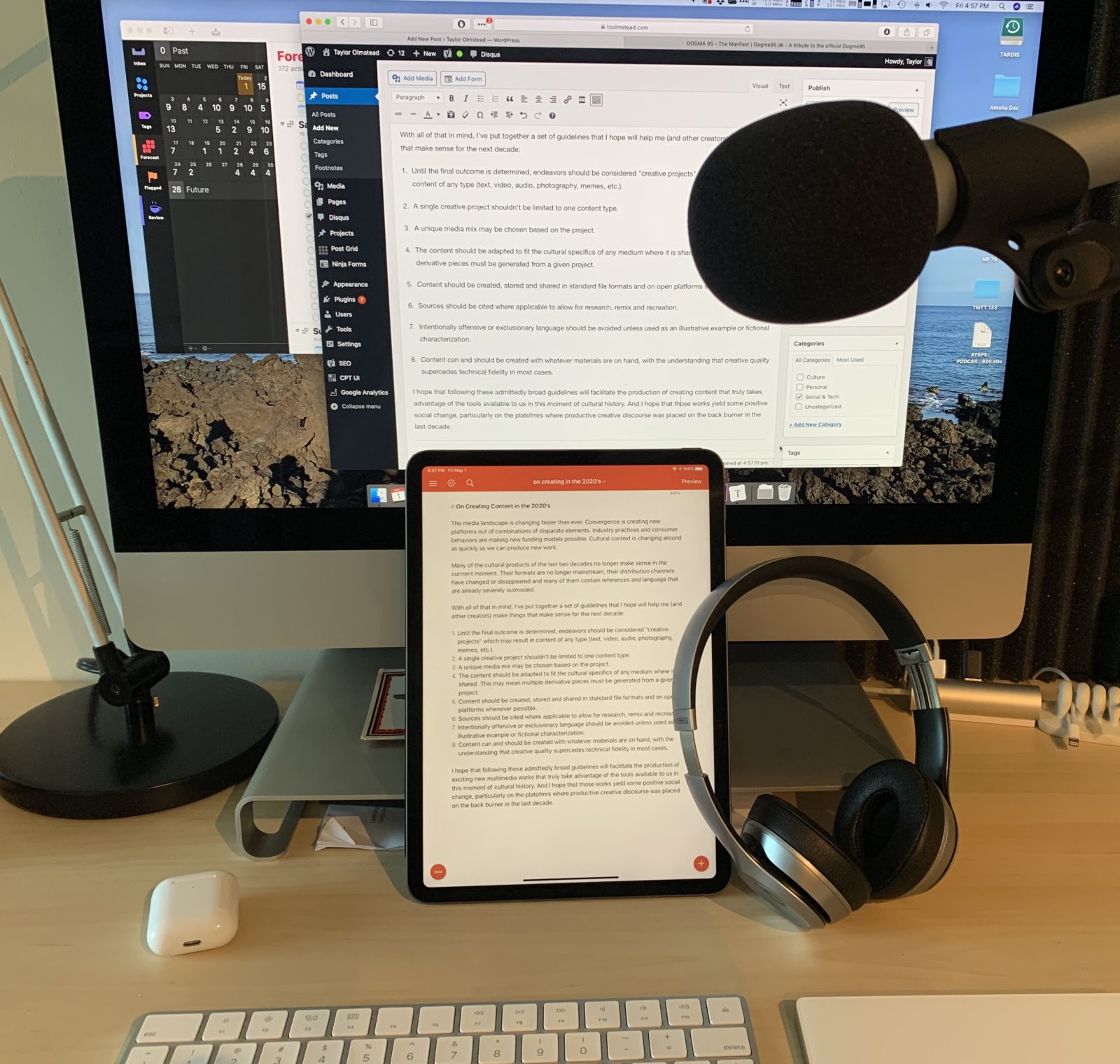As the social internet enters its third decade, it is time we start creating content with more intention.
The media landscape is changing faster than ever. Convergence is creating new platforms out of combinations of disparate elements. Industry practices and consumer behaviors are making new funding models possible. Cultural context is changing around as quickly as we can produce new work.
Much of the content of the last two decades no longer make sense in the current moment. Their formats are no longer mainstream, their distribution channels have changed or disappeared, and many of them contain references and language that are already severely outmoded.
With all of that in mind, I’ve put together a set of guidelines that I hope will help me (and other creators) create content that makes sense for the next decade:
- Consider all endeavors as considered “creative projects,” which may result in content of any type (text, video, audio, photography, memes, etc.).
- A single creative project shouldn’t be limited to one content type.
- A unique media mix may be chosen based on the project.
- The content should be adapted to fit the cultural specifics of any medium where it is shared. The project may require multiple derivative pieces of content to form a more extensive series.
- Content should be created, stored, and shared in standard file formats and on open platforms whenever possible.
- Cite sources where applicable to allow for research, remix, and recreation.
- Avoid intentionally offensive or exclusionary language should, except as illustrative examples or fictional characterizations.
- Create content with whatever materials are on hand, understanding that artistic quality supersedes technical fidelity in most cases.
I hope that following these admittedly broad guidelines will facilitate the production of creative content that truly takes advantage of the tools available to us in this moment of cultural history. And I hope that those works yield some positive social change, particularly on the platforms where productive, creative discourse disappeared in the last decade.
This post is a response to the Dogme 95 Manifesto for a Media Expression course in the Department of Film, Media & Theatre at Georgia State University.
